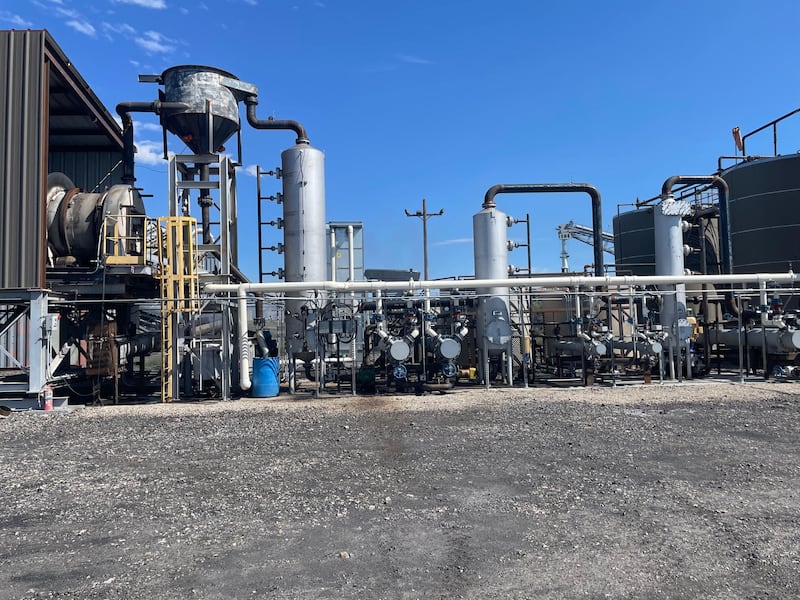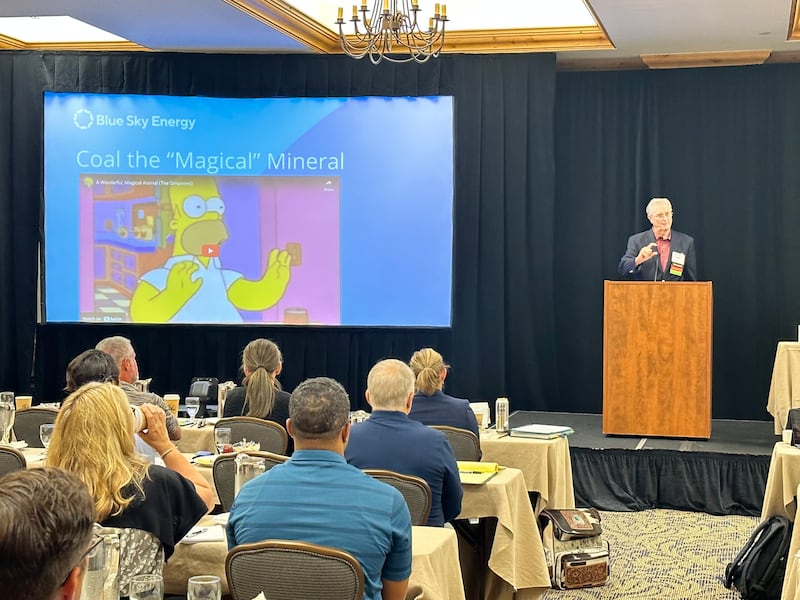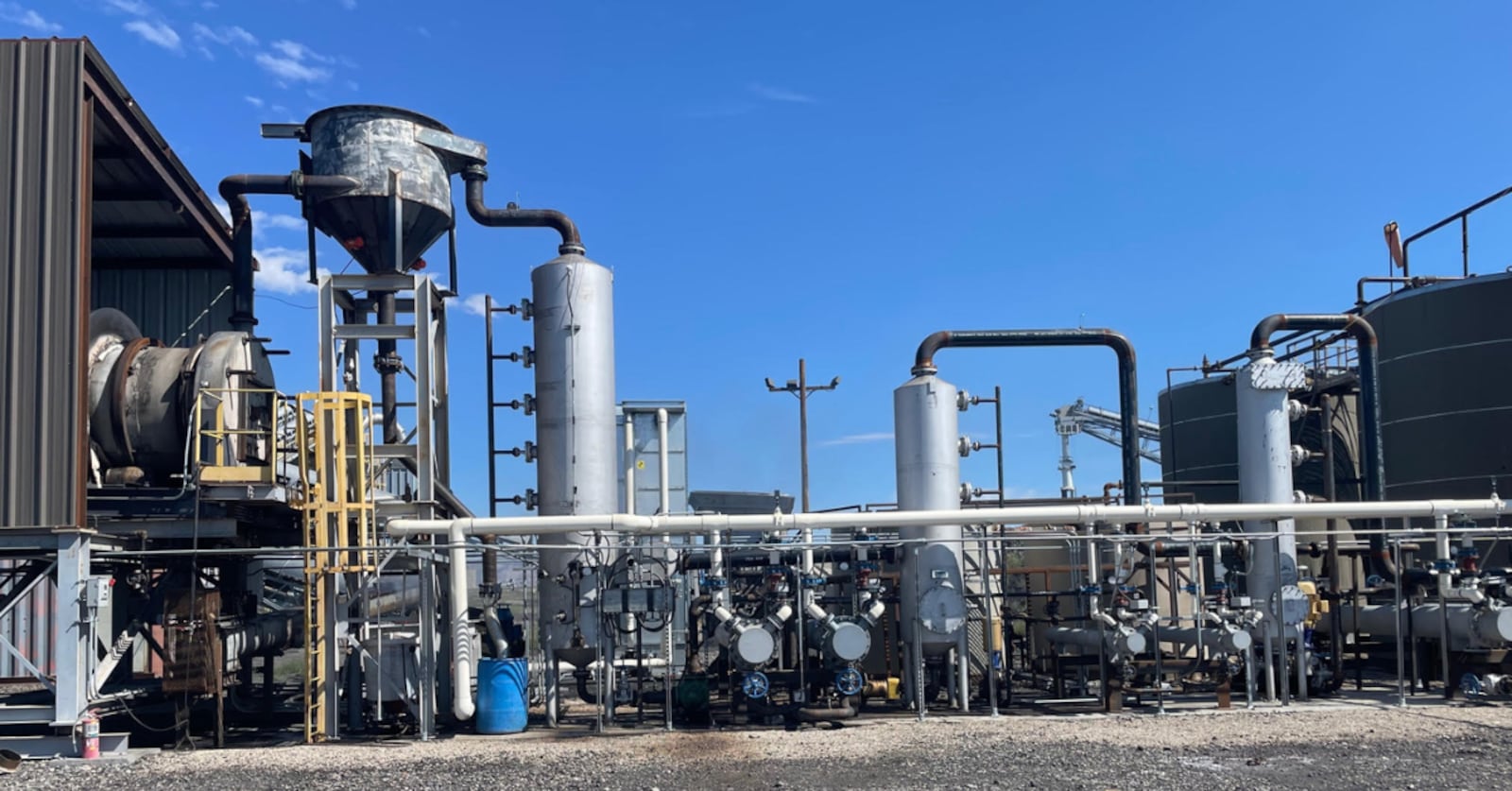
Photo courtesy of Blue Sky Energy
You’d think that someone on a mission to save and reinvent the coal industry would have a lifetime of experience in coal mining, come from a long heritage of coal miners, and most likely hail from Kentucky or West Virginia. On the contrary, a new hope for the coal industry—and the material itself—is Utah’s Alan Hall.
His resume reads like many of the state’s other successful, high-tech founders do, and it doesn’t contain a speck of coal dust. Hall is the former chairman of the Utah Technology Council, co-founder of Mercato Partners and the founder of Marketstar, one of Utah’s oldest tech giants. Nothing on his impressive resume even comes close to mentioning coal. So how did this philanthropist, venture capitalist and serial entrepreneur find himself in the coal business? And, more importantly, why?
Potential sans pollution
Hall’s passion for coal started with a unique opportunity. Just over one year ago, the team at Renuva Energy offered Hall the exclusive global operating license to build manufacturing plants that use their technology to convert coal into reusable energy.
“I didn’t know anything [about coal] at the time, so I consulted with former Brigham Young University professors in chemistry and engineering—Craig Eatough and Brent Strong—to learn about what products can be produced and what technology is out there,” Hall says. “Hydrogen is the number one product that can be converted from coal. It can replace every fuel we’ve got.”
Through Blue Sky Energy (BSE), Hall’s latest venture, he aims to remediate coal waste, repurpose it as a clean energy source and capture harmful greenhouse gases in the process. BSE partners with coal producers to convert coal and coal waste into other products like crude oil, carbon-neutral coal char and other compressed gases.
“Instead of burning coal, we’ll put it in a 40-by-8 kiln or oven and heat it to 2,000 degrees. When you heat coal that way, it breaks down into all the chemicals inside it,” Hall explains. “As the vapors are released, they become hydrogen, active carbon, carbon fiber and graphite. We then collect those gases and recycle them back in to heat the coal without any exhausts. That clean hydrogen can be used for transportation and electricity. Hydrogen is the future of clean-burning fuel.”
Dr. Craig Eatough, chief science officer at Blue Sky, abides by this mantra: “Coal is too valuable to burn.” He says that while 90 percent of Blue Sky’s revenue will come from hydrogen production, it’ll only account for up to 10 percent of the company’s products.
“Our solution for coal is very real,” Eatough continues. “We’ve been extracting chemicals and products from coal for different applications, but it hasn’t been done in an environmentally acceptable manner. Faulty processes have led to environmental issues. … With our technology, we reduce those emissions down to almost zero percent.”

Alan Hall giving a presentation at the Coal Market Strategies conference in Park City, Utah. | Photo by Mickey Jacobs
Hall points out that mining communities suffer as coal mines close and miners lose their jobs. According to a Journal of Science Policy & Governance report, over 300 coal-fired power plants have been retired in the last decade, and more than 42 percent of jobs in coal production have been lost since 2011. Hall aims to save the industry and keep miners employed through BSE’s technology, ultimately revitalizing these rural communities.
While this job loss has been primarily concentrated in the Appalachian region, it’s also hitting other states. In 2021, 1,000 miners were laid off in Montana and Wyoming, greatly impacting the economies in the areas affected.
“Families in our mining communities are telling their kids to stay away from mining and that there’s no future there. But we need miners! That’s where the disconnect is,” said Emily Arthun, CEO of the American Coal Council, at the Coal Market Strategies conference in August. “Mineral mines, coal mines—the skillsets are transferable. We need to train kids on what’s going on in mining and coal and get them excited.”
A dirty word
Hall points out that though the word “coal” has a negative connotation, it didn’t always—and doesn’t have to in the future.
“Coal has been used for 200 years. It’s been burned all this time, and it’s polluted the sky,” he says. “Big coal mining companies haven’t thought about what they could be doing differently. The coal industry is not led by entrepreneurs and the government has condemned coal. But why don’t we take the good things out of coal and use them without polluting the environment? Now, we’re going to the coal mines and saying, ‘Let’s partner and see how fast we can do this.’”
BSE’s pilot plant is located in Wellington, Utah. The company plans to open as many as 300 plants across the United States—many in Wyoming—and another 1,200 facilities in numerous foreign coal mining countries. All of these plants will be primarily focused on converting coal into hydrogen.
“There’s a lot of coal in Wyoming,” Hall says. “The state wants [these plants] there because most of their tax revenue came from the coal companies, and when they closed, there was no tax revenue. We’re coming to keep them open, and their revenues will come from the sale of hydrogen.”
In a 2022 press release, BSE announced that one plant ingesting 75,000 tons of coal refuse could generate up to 24,750 tons of industrial-grade charcoal, 187,500 barrels of crude oil and high volumes of commercial gasses—like butane, methane and propane—annually. What that equates to in revenues is significant, according to Hall.
“Today, you can buy hydrogen for $10 per kilogram. The plants we’re building will make 3.5 million kilograms or $35 million in just hydrogen,” he says. “Four of [the plants we’re currently building] will be permanent in Wellington, using local coal from local mines. It’s somewhat of a philanthropic effort and will give money to the communities. We’ll keep them in business.”
The future of (clean) energy
With the global shift away from fossil fuels comes many opportunities for hydrogen. For example, Volkswagen recently filed a patent for a new hydrogen car that could travel over 1,200 miles on a single tank.
“Regardless of the manufacturer, our goal is for our technology to be launched in a series vehicle by 2026,” said Kraftwerk CEO Sascha Kühn, the company behind the fuel cell technology, in an article published by Hydrogen Central last year.
And other exciting discoveries about the resource are being made with increasing frequency. For example, the University of Wyoming recently began testing a coal-derived soil amendment that could allow the soil to retain more water and increase plant growth.
“The possibilities for coal seem to be never-ending,” Hall says. “Right now, we’re talking to the oil industry and educating people. We’re talking to Northrop Grumman for activated carbon. We’re talking to companies that need heavy oil and air suppliers that need hydrogen.”
To illustrate how public perception cuts coal short, Hall recounts an episode of “The Simpsons” in which Homer Simpson is flabbergasted when Lisa, his book-smart daughter, enlightens him about the plethora of food products that stem from pigs. In reply, Homer exclaims, “Miracle animals!”
“Just as many people fail to grasp the multifaceted nature of our porky pals, they turn a blind eye to the unexpected wonders of coal,” Hall continues, saying, “Coal is not simply a symbol of dirty energy. Coal gifts us an astonishing array of carbon-based products, from diamonds to synthetic fibers. Coal’s carbon-based derivatives weave themselves into our everyday lives without us even realizing it. It’s almost as if coal is playing a game of hide-and-seek, taunting us with its unexpected versatility.”
Hall also worries about the public’s understanding of the role coal currently plays in America’s energy consumption and the dangers of phasing away from it too soon. To put this into perspective, he tells this story about a conversation he had with a prospective partner in South Africa who was interested in franchising the BSE technology:
“It was nighttime where the gentleman was located, and he was interested in working with us because they’re closing the coal mines in South Africa. During our call, I could only see his face by the light of the computer screen. They only have electricity for 12 hours per day. Coal has been their main energy source for electricity and, with its loss, their electricity is rationed. At Blue Sky, we’re saying, ‘Hold on, don’t close the coal mines just yet. Let’s give this new approach a try. We want to give you electricity 24/7.’”
An unlikely story
As we finished our discussion, I couldn’t help but comment on the transformation Hall has made to his own career. He laughed, then shared a story from when he was nominated for the Ernst & Young Entrepreneur of the Year Award in 1996. He had made it to nationals in Palm Springs, California, and on the night of the award, he turned to the gentleman—another nominee—seated next to him in the audience.
“What do you do for a living?” Hall asked, to which the man replied, “I try to sell books online.” Unimpressed, Alan turned to his wife, seated on his other side, and whispered, “That’s the dumbest idea I’ve ever heard!” That man was Jeff Bezos, the founder of Amazon.com.
Several years later, when Hall was the chairman of the Utah Technology Council, Bezos was invited to attend and speak at one of their events. Hall had the chance to recount the story to those in the audience, including Bezos, who was quite amused.
“I go back to that night a lot and my reaction to him describing his line of work,” Hall says. “When people ask me what I do, and I reply with, ‘I turn coal into stuff,’ I wait for them to roll their eyes and turn to the person next to them and say, ‘Dumbest idea ever.’ But my goal is to be the Jeff Bezos of coal.”

